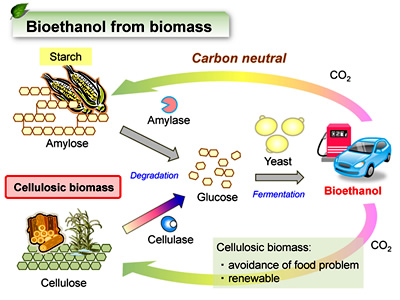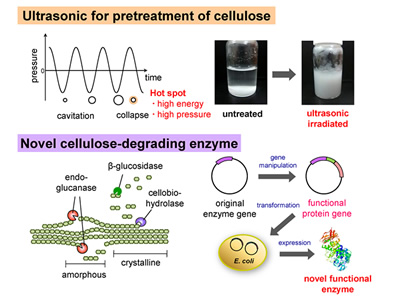High-efficiency biomass decomposition for production of bioethanol
Bioethanol is attracting notice as a new type of fuel, and there are high expectations for processes manufacturing bioethanol from biomass, particularly of the cellulose type which does not compete with foodstuffs (e.g., rice straw and waste wood). Cellulose is a polysaccharide made of linked glucose units, and thus it is possible to obtain glucose by breaking down cellulose with enzymes, and ethanol can be produced by fermenting the glucose with microorganisms such as yeast. However, the original role of cellulose is to main the structure of plants, and it is a highly crystalline, persistent polymer. The enzyme decomposition rate of cellulose is extremely slow, and this is a major problem for achieving practical application.
At this laboratory, we are conducting research to create new pretreatment techniques and new enzymes to breakdown cellulose, with the aim of achieving more efficient enzymatic decomposition of cellulose. Previously, it has been found that pretreating crystalline cellulose with ultrasound destroys the crystal structure of cellulose, and increases the efficiency of enzymatic decomposition. In addition, we are working to create new enzymes for breaking down cellulose, endowed with functionality not present in natural enzymes, by using genetic engineering techniques.
 
|



